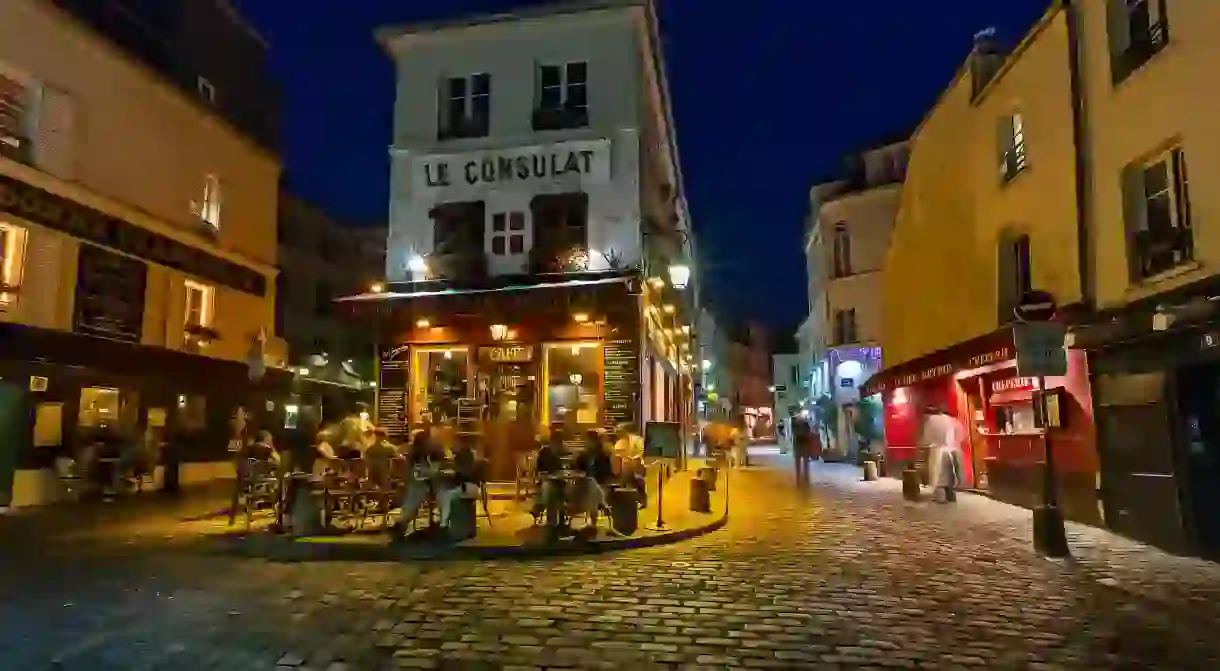The Top Things To Do And See In Le Quartier Latin

Le Quartier Latin, which translates to ‘the Latin Quarter,’ is named after the language used to teach in Parisian universities of the time. Historically, Le Quartier was a center of effervescent knowledge, host to a significant student population and witness to the capital’s lifestyle during the Antiquity and the Middle Ages. Learn more about that heritage below.
Jardin du Luxembourg
Inspired by the Florentine garden Boboli, the ‘Luco,’ as Parisians call it, was created in 1612 and is characterized by both French and British styles. The gardens are quiet places to relax while admiring the surrounding 106 statues of famous figures.
The park is home to one of Paris‘ smallest, yet truly wonderful art museums. The Musée du Luxembourg often hosts free exhibits and concerts in its kiosk and is a perfect venue for the lazy days of summer.
Additionally, a school of horticulture was opened in the gardens in order to offer free gardening workshops to Parisians, and its courses are led by professional gardeners.

Cluny Museum
If you are a history lover, The National Museum of the Middle Ages is a must-see. In this fifteenth-century hôtel particulier, you will find a large display of medieval paintings, sculptures and beautiful fragments of stained glass. The museum is home to ‘The Lady and the Unicorn’, one of the greatest works of art from Europe’s Middle Ages, consisting of a series of six tapestries woven from wool and silk. Be sure to take a look at the medieval garden featured here, as well as the remains of a roman bath that dates back to the first century.
Maubert Market
Located in Maubert Square, this market has an unusual story. The market as we know it dates back to 1920, but its ancestry goes all the way back to the 19th century. Back then, it was called ‘marché aux mégots’ —literally the market of ‘cigarette ends’ —and the market was a place of reunion for the homeless. They used to gather cigarette ends in order to collect and sell their last bits of tobacco.
Panthéon-Sorbonne
The building known as La Sorbonne gets its name from Robert de Sorbon, the man who founded the ‘Collège de la Sorbonne’— the department of theological studies —in 1257, as part of the University of Paris. Its chapel, located on the Sorbonne Square, is the university’s emblem, recognized as a historic monument to iconic student protests like those of May 1968, or the youth protests of 2006.
La Grande Mosquée
Located near the Museum of Natural History, The Grande Mosquée de Paris is exotic compared to other buildings in the area. Its construction, completed in 1926, was inspired by Hispano-Moresque styles. It is open to visitors every day except Fridays, and it offers a paradise of heat and spices; stop by to drink a delicious Moroccan tea and taste typical eastern sweets, all while smoking hookah at their café. If that’s not enough, the mosque also includes a restaurant that serves traditional Maghreb cuisine.
Les Arenas de Lutetia
The Arenas of Lutece are among the last heritage sites of the Gallo-Roman era that remain visible in Paris. Built during the 1st and 2nd centuries, the Arenas could accommodate approximately 15,000 visitors. The Amphitheatre was once the site of Gladiator battles and other forms of Roman entertainment. Once forgotten, the Arenas were re-discovered in 1869.

Passage St. André des Arts
An ancient pedestrian street with antique shops and art galleries, the Passage St. André des Arts begins at Cour du Commerce-Saint-André, where several historical building façades make it a lovely spot for a romantic stroll. A short distance away, you can find the Café Procope, one of the oldest cafe-restaurant in the capital, where Voltaire and Diderot often went to seek inspiration.
Shakespeare & Co.
Shakepeare & Co. is one of the most famous English bookstores in Paris, and it’s located near Notre-Dame, the perfect spot for visitors to sit back and enjoy a public reading. Opened in 1951 by George Whitman in a 16th century building that was originally a monastery, Shakespeare and Company exudes originality. Fun Fact: the library appears in Woody Allen’s movie ‘Midnight in Paris.’
Église Saint Severin
A beautiful Gothic-style cathedral, the Église Saint Severin is one of the oldest Parish churches on Paris‘ Left Bank. Most of the actual building dates back to the 13th and 15th centuries, while its origins can be traced all the way to the 6th century, when it was built atop the tomb of a pious hermit named Severin.
Rue Mazarine
The Rue Mazarine is a must-see for art lovers everywhere. Here, you will find a large variety of art galleries, from the most experimental independent galleries to commercial or studio galleries, this is the perfect place to get in touch with your inner contemporary art lover.
Did you know – Culture Trip now does bookable, small-group trips? Pick from authentic, immersive Epic Trips, compact and action-packed Mini Trips and sparkling, expansive Sailing Trips.













